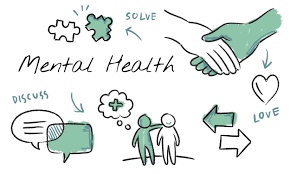Mental Health Test|A Simple Guide to Understanding Your Emotional Well-Being
In today’s fast-paced world, taking care of your mental health is as important as taking care of your body. Many people use a mental health test or online self-assessment to better understand their emotional state — not as a diagnosis, but as a first step toward awareness. This guide explains what these tests measure, how to use them responsibly, and what to do after you complete one.
💡 What Is a Mental Health Test?
A mental health test (or self-assessment) is a short questionnaire designed to help you reflect on how you’ve been feeling lately. It may include questions about mood, sleep, concentration, or stress levels.
These tests can help identify patterns related to:
- Stress and burnout
- Anxiety and worry
- Depressive moods or low motivation
- Emotional balance and resilience
Remember: these are not diagnostic tools. Results are best used as a guide to help you decide whether professional counseling or support could be helpful.
🌿 Why Take an Online Mental Health Test?
Taking an online mental health test can help you:
- Recognize signs of emotional strain early
- Reflect on lifestyle factors affecting your well-being
- Track mood changes over time
- Prepare for discussions with a mental health counselor
It’s a quick and private way to check in with yourself — especially useful if you’ve been feeling “off” but aren’t sure why.
📊 Common Types of Tests
These tests usually take less than 5 minutes and use simple rating scales.
⚖️ How to Interpret the Results
If your test results suggest high levels of stress or emotional difficulty, that doesn’t automatically mean something is “wrong.” Instead, it’s an opportunity to:
- Reflect on your daily habits
- Consider reaching out for support or counseling
- Explore lifestyle changes such as rest, exercise, or mindfulness
For serious or persistent distress, talking to a licensed mental health professional is always a good next step.
💬 How Professionals Use These Tests
Counselors and therapists often use validated mental health questionnaires during initial consultations. They help track progress, set goals, and ensure you receive support tailored to your situation. Combining self-assessment tools with professional guidance can make emotional care more structured and effective.
🌱 Summary
A mental health test is not about labeling yourself — it’s about self-awareness. By understanding how you feel, you take an active step toward better emotional balance and long-term well-being.
